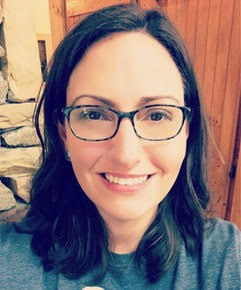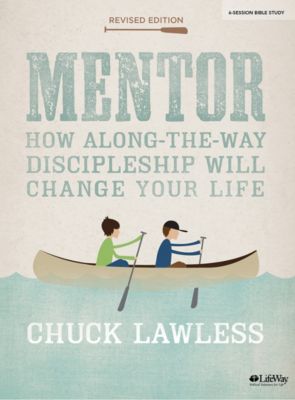
By Misty Hedrick
“Because you listened to me, I knew you loved me. Because I knew you loved me, I listened to you.” Jill Briscoe closed her story with these words.
In a room filled with hundreds of millennial and Gen X women on the edge of their seats, at 86, Jill looked like the outlier. But in her, those women saw a grandmother who served faithfully, lighting the way for one generation to disciple the next.
Birthed in an age of polarity and raised on technology, today’s college students are part of Gen Z. They rank among the most racially and ethnically diverse generations and will likely become the most educated. They care about the environment, social justice, and inclusivity, and they just voted in their first election. Where wars and recessions shaped previous generations, the pandemic is the first major hurdle for Gen Z.
“Because you listened to me, I knew you loved me. Because I knew you loved me, I listened to you.” Click To TweetWhen it comes to the women of Gen Z, however, a few darker trends emerge. Depression and anxiety increasingly characterize them, and gender issues, sexual abuse in the church, and an exodus of single women from congregations are certain to affect Gen Z women’s spiritual formation.
Yet young women long for mentoring relationships. And women in the church can help in five ways:
Create friendships.
College women value the openness, safety, and give-and-take of friendship. In typical mentoring, participants might try to impress each other. But in a friendship, people feel at ease asking hard questions, saying what they want or need to say.
In Safe People, authors Cloud and Townsend observe that Jesus exhibited three qualities of a safe person: dwelling together, grace, and truth. The authors identify safe relationships as those in which people “can speak the truth to one another, confronting each other as needed.”
Mentoring through friendship relaxes the formality while maximizing impact. — @mistyhedrick Click To TweetWhile vulnerability may seem like a no-brainer for mentoring, young women don’t want one-sided relationships. Friendship depends on each party contributing. When a mentor expresses no needs, it seems fake. Admitting a need requires humility and acceptance of the other—both critical in friendship. Mentoring through friendship relaxes the formality while maximizing impact.
Take friends home.
In Organic Ministry to Women, Edwards and Mathews write that young women “are desperate for relationships” and “continually use the word home,” noting the women enjoy being invited into someone’s domestic space. In my ministry one of the most poignant moments came when a college student stepped into our kitchen and observed, “I’ve never seen a couple cook together like this—like a family.”
Edwards and Mathews note that “many, because of their backgrounds, need spiritual mothering.” One young woman agrees: “A lot of students still live with their parents, but my parents died. I need a spiritual mom and a place to go when I need advice and encouragement.” Another added: “The times that mean the most to me are when we eat a meal together—whether it’s with our families, with friends’ families, or the college group. It brings a sense of unity.”
Look for longevity.
For years, mentoring programs pushed short-term interaction. But no one changes overnight. To instill good habits and contribute to spiritual formation requires years. Young women want a relationship that is not hamstrung by timelines. Friendships don’t end after six or 12 months, so why should mentoring relationships?
Longevity shows the mentor actually cares about them, rather than thinking of them as an obligation. A longer-term relationship allows students and mentors to know and learn from each other.
"We need people who are constant in a world where everything for us is changing." Click To TweetIn the words of one young woman, “College ministry feels like a revolving door, because college is transitional by nature. And college ministers tend to come and go. We need people who are constant in a world where everything for us is changing. The culture now is all about self, and people don’t have time for anyone else. Having women in the church see our need and say, ‘Let’s go fill it’—that encourages us.”
Expect multiplicity.
The next generation prefers a variety of mentors, and they want diversity in ages, life stages, and cultures. For Gen Z, the more really is the merrier. Young women thrive in an environment in which one mentor teaches about walking with Christ, another teaches how to land and persevere in a job, and yet another helps them through the loss of parents or relationships.
In such heterogeneity, young women sense a community of helpers, teachers, and friends. And, while some might expect to mentor only one person at a time, younger women want to share the love. If they’re learning from their mentor, they want to invite their friends to learn too.
Let them lead.
Young women expect a seat at the table. In their youth, they watched women shatter glass ceilings, so these women envision themselves as CEOs and presidents. Yet often in the church they feel as if their gifts are disregarded.
They don’t want to make the church look like the world, but they do expect some effort to align the church with God’s coming kingdom in which brothers and sisters from every nation glorify God together.
Young women don’t want the church to look like the world, but they do expect the church to align with God’s coming kingdom in which brothers and sisters from every nation glorify God together. — @mistyhedrick Click To TweetCollege-aged women have leadership skills, gifts, and creativity in spades. Often, they just need someone to walk alongside them and train them to lead Bible studies, host events, and serve others in the church. They want training, not handholding.
“When we graduate from high school, it feels like we graduate from church,” one student said. “Everything in the ‘main’ church is different from youth—they worship, serve, and interact differently. You know those upperclassmen at colleges who show freshmen around campus and orient them? Maybe churches need ‘upperclassmen’ like that. Churches spend all this money on youth and then forget about us. When graduation comes, we’re unprepared to integrate.”
“But the church still does a lot of things right,” she added. Being known, watching people live faithfully through difficulty, and seeing their investment in the next generation makes her want to attend. “The church can help us by having women who relate to us and understand what we are going through.”
And isn’t that exactly what Jill Briscoe said? “Because I knew you loved me, I listened to you.”

Misty Hedrick
Misty serves women and college students, and studies words and theology at Dallas Seminary.








